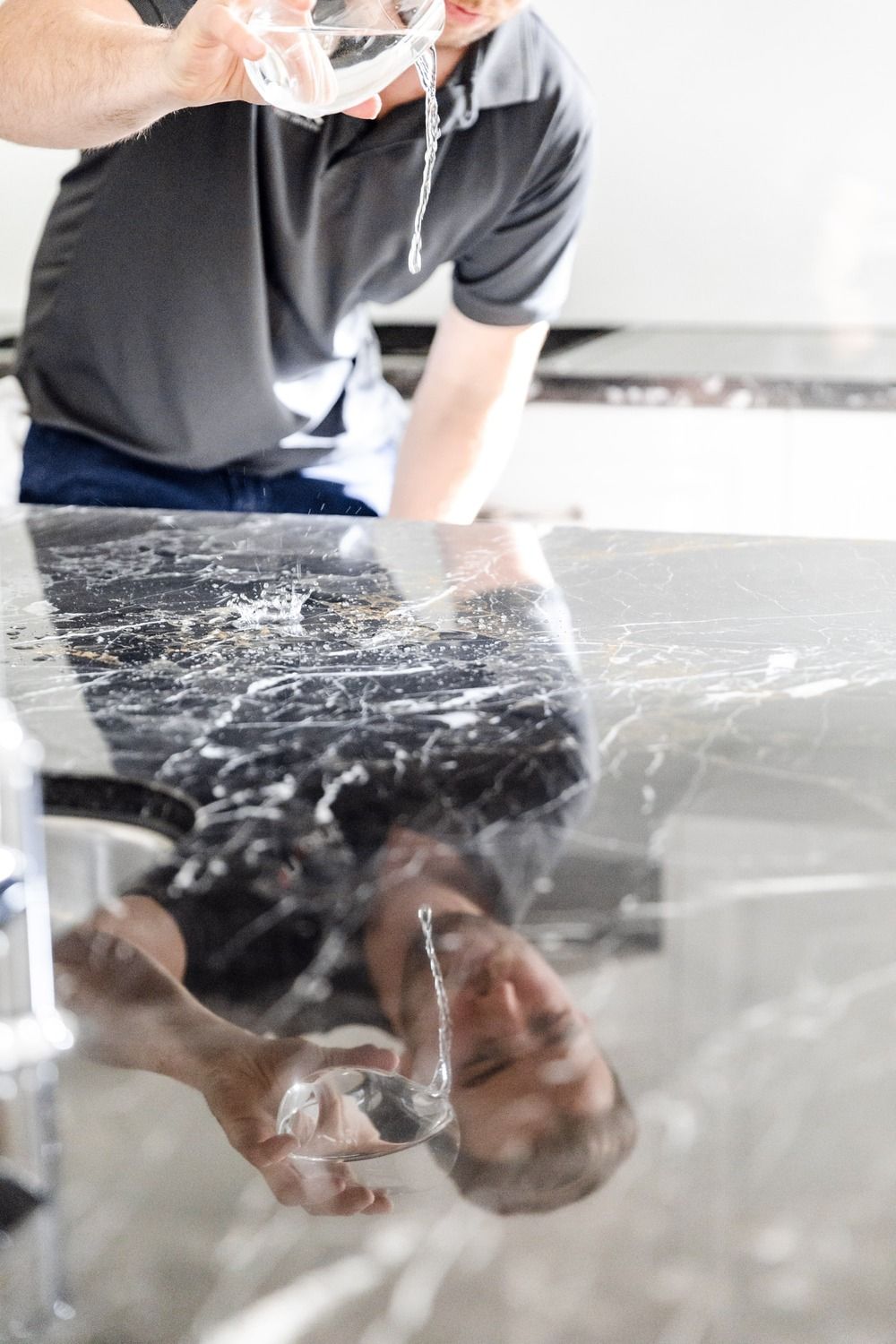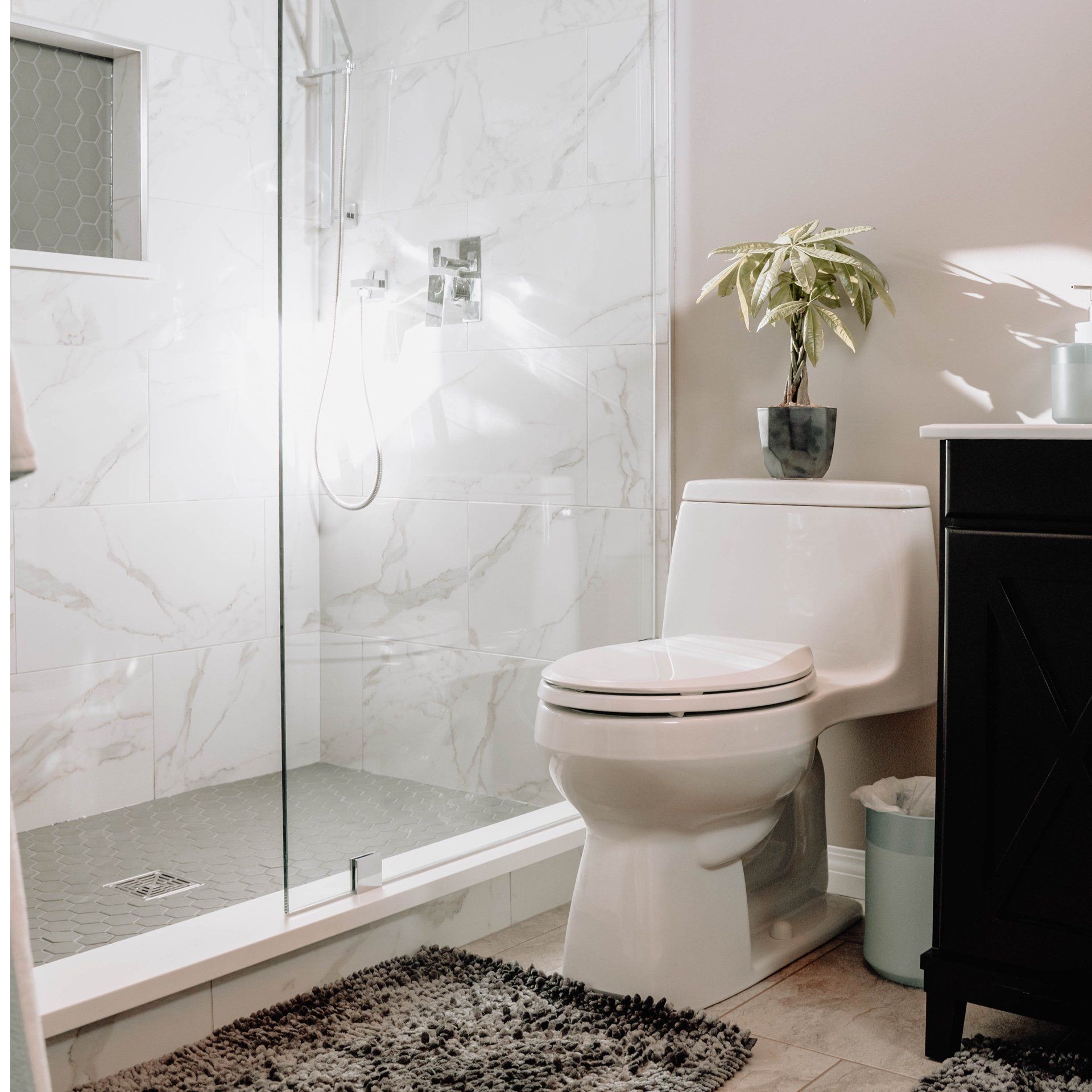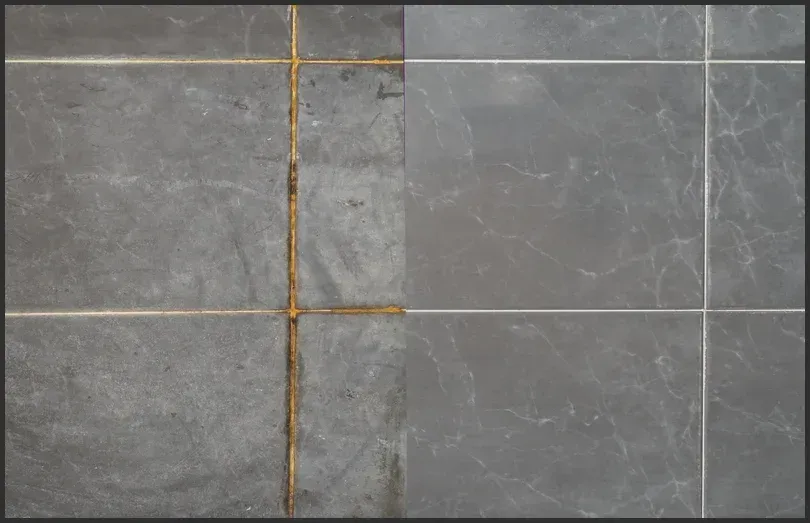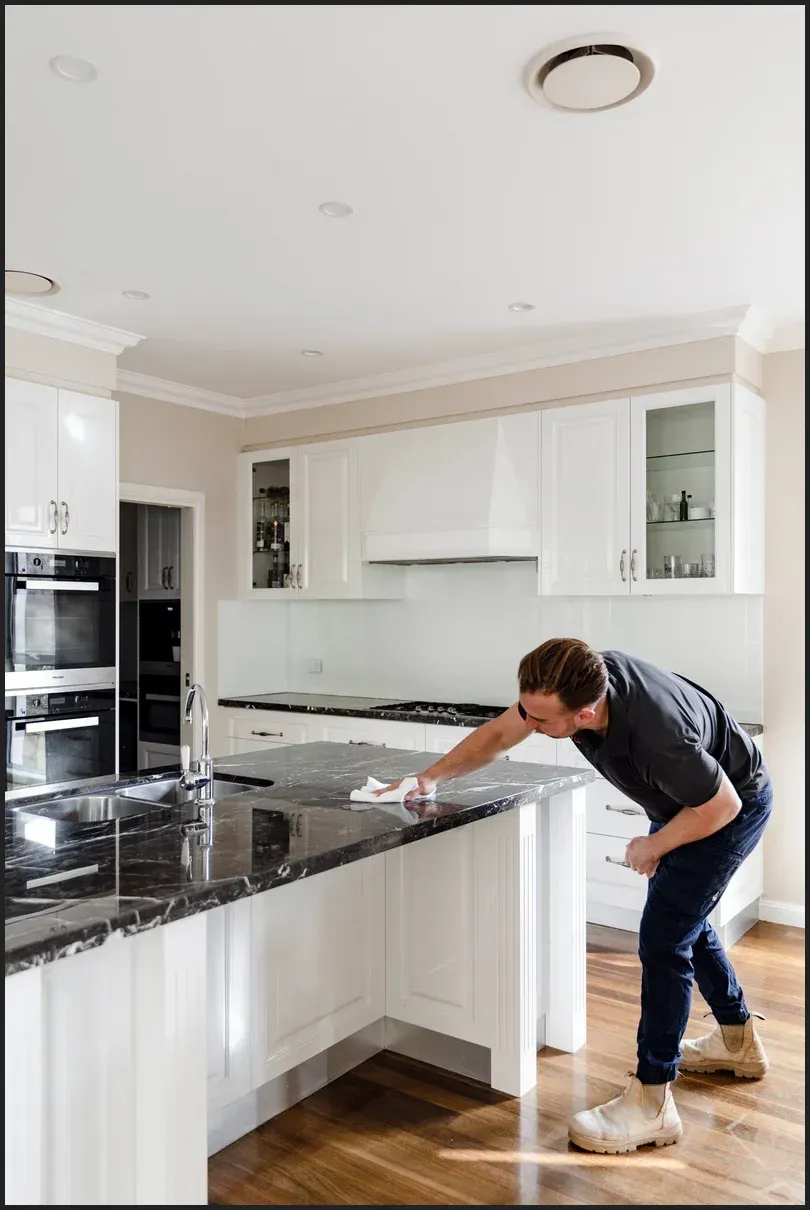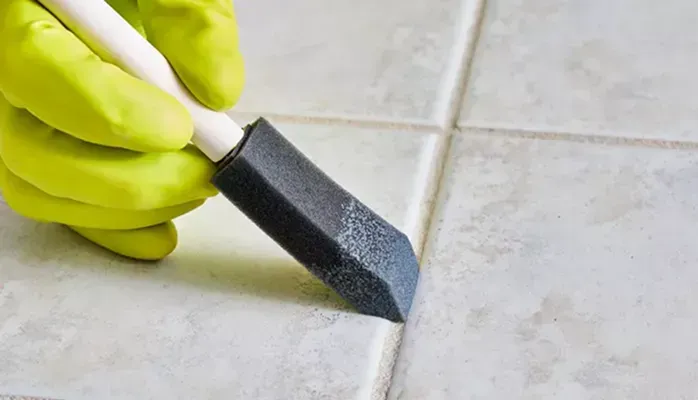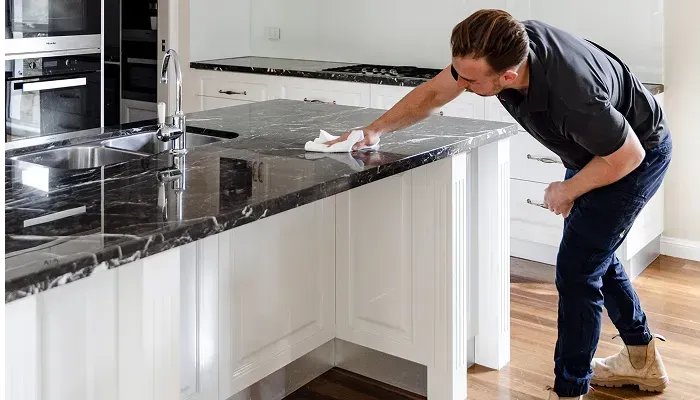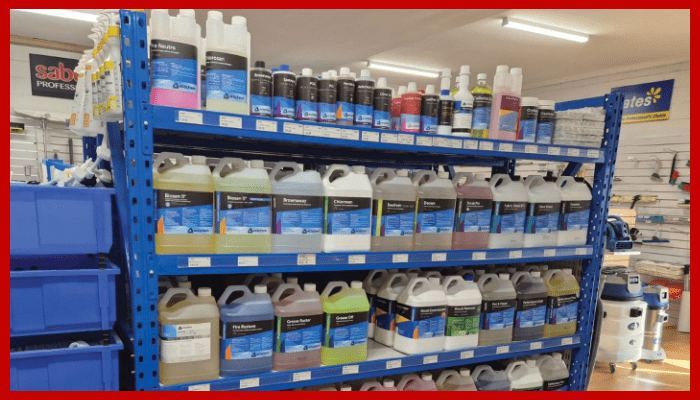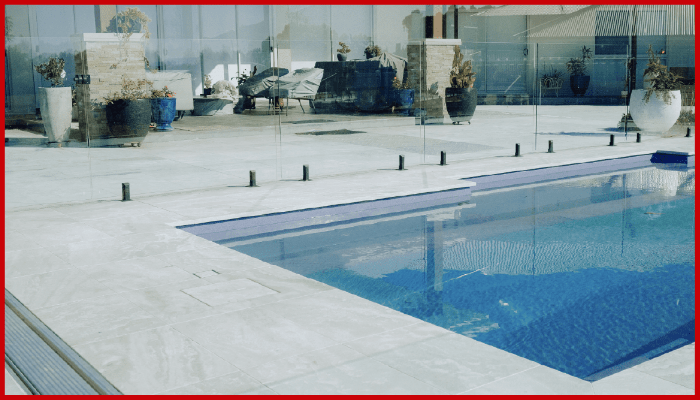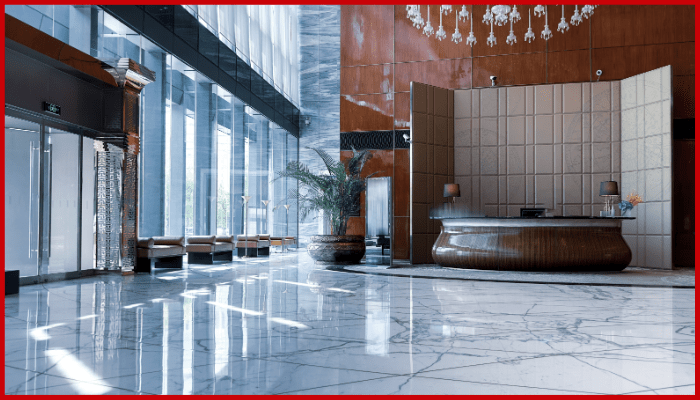Protecting Your Marble Benchtop
How to Protect Your Marble Benchtop
From Everyday Damage
Table of Contents:
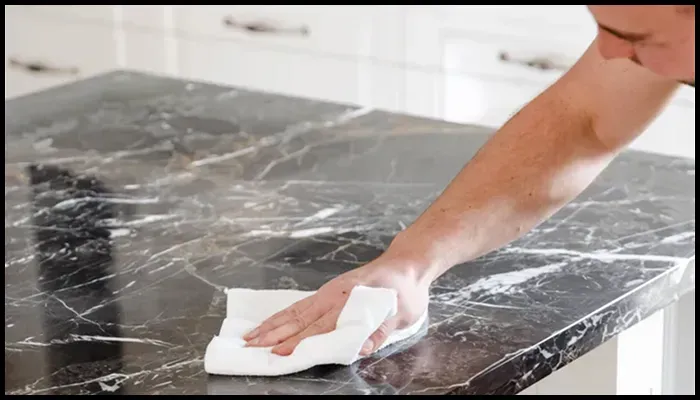
Marble benchtops are a no-brainer if you're looking to add a touch of elegance and natural beauty to your home.
It has a timeless appeal, making it such a popular choice of building material.
Despite its glamour, though, your marble countertops and marble floors need proper maintenance if you want to fend off long-term damage!
The first step? Follow an everyday routine that prevents stains, scratches and other damage that come from daily use!
Why Does Marble Require Special Care?
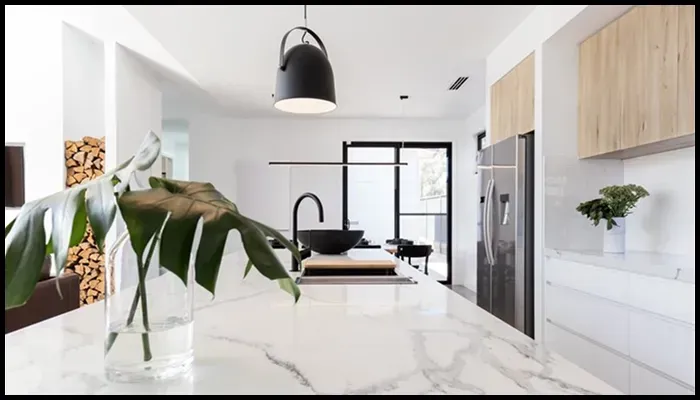
Marble is a soft and porous material, therefore absorbing liquids easily.
What does this mean for your stone kitchen benchtops? Well, it can lead to water stains, oil stains and overall discolouration.
On top of that, marble is sensitive to acidic substances like lemon juice, citrus juices, and red wine, which can cause etching on the surface of your stone.
Additionally, everyday use in high-traffic areas like your kitchen can cause minor scratches and hairline cracks over time, making marble restoration tips especially valuable.
That’s why regular maintenance and proper care are essential to protect your marble!
Best Practices for Protecting Marble Benchtops from Damage
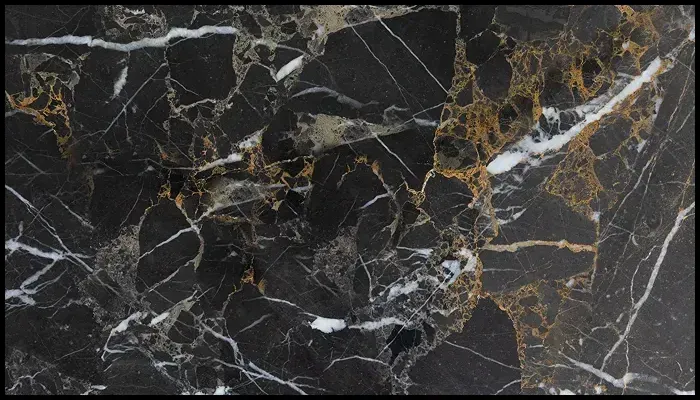
1. Clean Your Natural Stone Benchtops the Right Way
Your marble surfaces need regular cleaning
using gentle products. Here are some easy tips you can follow:
- Wipe the surface daily with a soft cloth or damp cloth to remove dust and spills.
- Use a mild soap or mild detergent mixed with warm water for routine cleaning.
- Avoid using harsh cleaners or abrasive scrubbers, as they can wear down the polished finish and damage the stone’s surface.
- Dry the benchtop with a clean cloth or paper towels to prevent water stains.
- For stubborn stains, a small amount of hydrogen peroxide can help lift discolouration without damaging the stone.
2. Best Ways to Prevent Stains and Etching
Being a porous stone, your marble slabs absorb liquids quickly.
If you want to avoid leaving stained areas and permanent damage, make sure to:
- Always wipe up spills immediately, especially those from acidic substances like red wine, citrus juices, and vinegar.
- Use coasters under glasses and cups to protect against moisture rings.
- Place placemats or a protective film on your benchtop surfaces when preparing food to shield against potential damage from cutting and cooking.
3. Protect Your Marble from Heat and Scratches
Extreme temperatures from the improper handling of hot items, like cooking equipment left to overheat and warm pans placed on the benchtop, as well as daily wear and tear will damage your marble.
To prevent this:
- Never place hot pots, hot pans, or other high-heat items directly on the surface of your stone. Always use heat-resistant trivets or boards.
- Be mindful of downward pressure from heavy kitchen tools or appliances, which can lead to hairline cracks.
- Use place mats or cutting boards instead of chopping directly on the marble benchtop to prevent minor scratches.
4. Seal Your Marble for Long-Term Protection
A high-quality stone sealer is essential for keeping your natural stone benchtop looking great. Sealing helps to prevent porous surfaces from absorbing liquids, reducing the risk of stains.
- Apply a recommended product from a trusted stone supplier every six to twelve months for maximum protection.
- If your benchtop is in a wet area, such as a bathroom or near a sink, consider sealing more frequently.
- For best results, consult a professional service to ensure proper maintenance and sealing techniques.
5. Know When to Call in Professional Cleaning Services
Unfortunately, your marble surfaces can get worn down by use on a regular basis - even with regular care!
If you notice deep stains, scratches, or signs of etching, professional cleaning services can restore its original condition.
- Stone restoration experts can polish and reseal your marble to maintain its polished finish.
- They can also advise on preventative measures tailored to your specific benchtop care needs.
Common Mistakes to Avoid
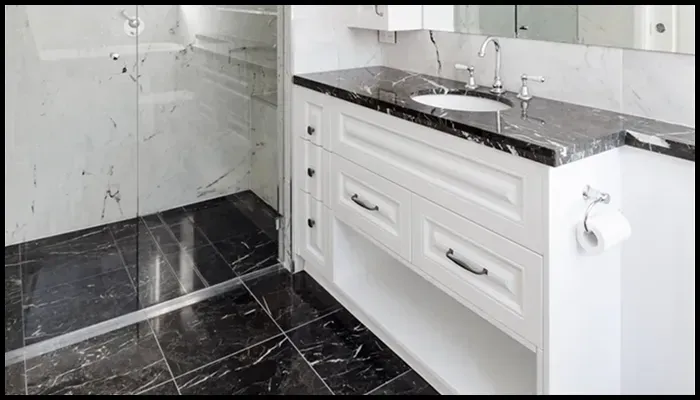
Many homeowners unknowingly damage their marble benchtops by using the wrong cleaning methods.
Here are some mistakes to avoid:
Using strong chemicals or harsh chemicals – Products like bleach, ammonia, and vinegar can weaken the surface of the stone.
Skipping regular maintenance – Routine cleaning with clean water and a soft cloth is essential for keeping your marble polishing intact and your marble looking new.
Leaving spills for too long – Acidic or oily substances can cause permanent damage if not wiped up immediately.
Using abrasive scrubbers – Scouring pads can scratch and dull the polished finish of your benchtop.
Exposing marble to extreme temperatures – Placing a hot pan or hot pots directly on the benchtop can lead to cracking.
Conclusion

New marble benchtops are a beautiful investment, but they require special care to maintain their natural beauty and timeless appeal.
By using these simple preventative measures as a guide, you can protect your benchtop from stains, scratches, and heat damage.
If you're in search of expert advice and a professional service to restore or maintain your marble benchtop,
contact On Point Property Services.
Our team specialises in stone cleaning, sealing, and restoration to keep your marble looking its best for years to come. There's no one better!
Frequently Asked Questions (FAQs)
What is the best way to clean a marble benchtop?
The best way to clean a marble benchtop is to use a mild detergent or mild soap mixed with warm water. Wipe the surface with a soft cloth or damp cloth and dry it immediately with a clean cloth to prevent water stains.
Can I use vinegar or lemon juice to clean my marble kitchen benchtop?
No, acidic substances like vinegar and lemon juice can cause etching and permanent damage to the surface of your stone. Always use pH-neutral cleaners designed for natural stone surfaces.
How often should I seal my marble benchtop?
It is recommended to apply stone sealers every six to twelve months to protect your benchtop from stains and moisture absorption. If your benchtop is in a high-traffic area or a wet area, you may need to seal it more frequently.
What should I do if I spill red wine on my marble benchtop?
Immediately blot the spill with paper towels or a clean cloth. Do not rub, as this can spread the stain. Clean the area with warm water and mild detergent, then dry with a soft cloth.
Can marble withstand high temperatures?
Marble is heat-resistant but not heatproof. Placing a hot pan or hot pots directly on the surface can cause cracks or discoloration. Always use heat-resistant trivets or boards to protect the stone’s surface.
How do I remove oil stains from my marble benchtop?
For oil stains, apply talcum powder to absorb excess oil before gently cleaning with mild detergent and warm water. If the stain persists, consult a professional service.
Is marble more delicate than a granite benchtop or quartz benchtops?
Yes, marble is a softer and more porous stone compared to granite benchtops and quartz benchtops, making it more prone to scratches, stains, and etching. Proper care and regular maintenance are essential.
What should I do if my marble develops hairline cracks?
Hairline cracks can develop from extreme temperatures or downward pressure. If you notice cracks, avoid applying excessive weight on the area and seek stone restoration services to prevent further damage.
Can I use protective film on my marble benchtop?
Yes, using a protective film can help shield your benchtop from scratches, stains, and heat damage. However, ensure it is safe for natural stone material and does not trap moisture.
How do I maintain the polished finish of my marble benchtop?
Regular cleaning with a soft cloth and using recommended stone sealers will help maintain its polished finish. Avoid harsh cleaners and abrasive scrubbers that can dull the surface.
On Point Property Services
Address:
Phone:
0430 771 959
Email:
admin@onpointpropertyservices.com.au
Operating Hours
8:00am - 4:00pm (Monday to Friday)
Quick Links
Locations We Service
Canberra ACT
Queanbeyan NSW
Yass NSW
Murrumbateman NSW
Goulburn NSW
Bungendore NSW
Acknowledgement of Country
We acknowledge the Ngunnawal and Ngambri peoples as the Traditional Custodians of the land on which we operate. We pay our respects to Elders past, present, and emerging and recognise their enduring connection to land, waters, and culture. We are committed to supporting and celebrating Indigenous communities and honoring the rich heritage and traditions of First Nations peoples.
